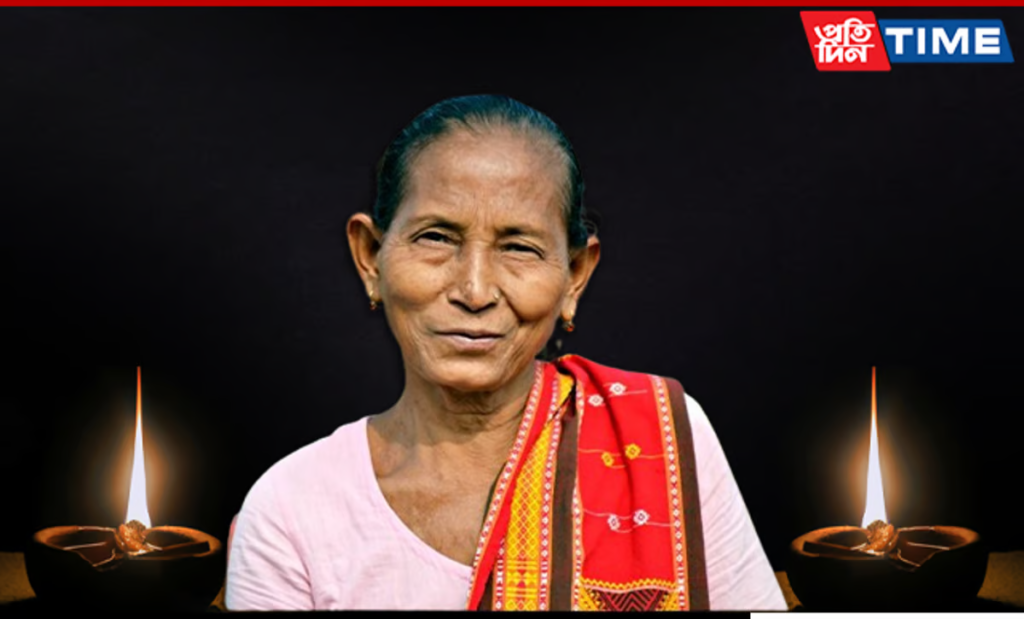
It’s been almost a decade since my maternal aunt forwarded an article on Witch hunting and its menace which is a burning issue in many tribal communities of Assam, India. Fast forward 10 years later, I am a doctoral candidate in Sociology specializing in the intersection of gender and violence where I study the phenomenon of Witch-hunting from a gendered lens applying feminist theory. My research is to investigate how domestic and communal violence is utilized to justify gender disparities at both structural and institutional levels, with a specific focus on disadvantaging grassroots women in the tribal community of Goalpara, Assam, India.
The above introduction is given to know what has drawn me to study witch hunts in Assam. It was when I was introduced to Birubala Rabha by Mrs Anurita Pathak, director of North East Network in one of the interviews that I had taken for my Master’s dissertation. When I had collected and archived about 20 newspaper articles for the dissertation, the 23-year-old me was bewildered to know about this strong-willed woman named- Birubala Rabha who worked relentlessly as an anti-witch crusader in Goalpara District, Assam.
Born in Thakurbila, a remote village in Garo Hills known for its prevalence of age-old superstitions and belief in witches, Birubala Rabha was the daughter of a poor farmer. From a very young age, she was very energetic and loved by all the villagers. After her father’s passing at a very young age, as the eldest daughter, Rabha took up all the household responsibilities of the household. Life took a turn when Birubala got married and was blessed with a baby boy, Dharmeshwar. When Dharmeshwar was in 5th grade, he suddenly fell ill. His conversations became incoherent and he had difficulty in performing daily tasks. A local medicine man (also known as Ojhas) couldn’t identify his illness and declared that he would die shortly based on superstitions. Dharmeshwar remained alive for many years but conditions worsened and was later shifted to a mental asylum in Shillong. Birubala lost hope in the traditional healers and their claims of practising witchcraft in the tribal community of Goalpara, Assam. Along with this, another personal tragedy crept into Birubala’s life when her husband suddenly fell sick one day and died. This is when the entire family and community blamed her and declared her a ‘daini’ (the Assamese word for witch)
After all the personal tragedies, Birubala stood up against this social menace not just in Goalpara but also in various tribal pockets of Assam. She became a tireless crusader in spreading awareness and organizing campaigns against witch-hunting all over Assam. For decades, she organized various victim rescue operations across several states in Assam and questioned the decisions of the quacks and traditional healers. Birubala tied up with organizations and projects like Assam Mahila Samata Samiti and Project Pahari where she raised her voice for all the docile women who were targeted as witches. She conducted multiple awareness camps for the empowerment of women and that brought light to this menace among the public. She also initiated her movement called ‘Mission Birubala’ in 2012 to create awareness as well as to provide rehabilitation to the victims of witch-hunting. Not only this, she played a crucial role in the passing of The Assam (Prevention, Prohibition and Protection) Act in 2015. Under the act, any offence related to witch-hunting was addressed and any accused was awarded a punishment of imprisonment of up to 7 years along with a huge fine.
Birubala Rabha stood as a perfect example of challenging patriarchal norms and gendered structures not only at an individual but also at the community level. Her contribution to women’s rights and justice was recognized with the Padma Shri by the central government of India in 2021. Even though we lost her to cancer a couple of weeks back, her iron-willed force and courage are to be remembered forever. She will also be remembered as a brave woman who dismantled the shackles of traditional prejudices and practices of society and stood tall against witch hunting in Assam.
***
Meghna Dutta is a PhD Candidate at the Department of Sociology, Wayne State University, Detroit, Michigan.

Liked reading it. Looks like many stories to come !